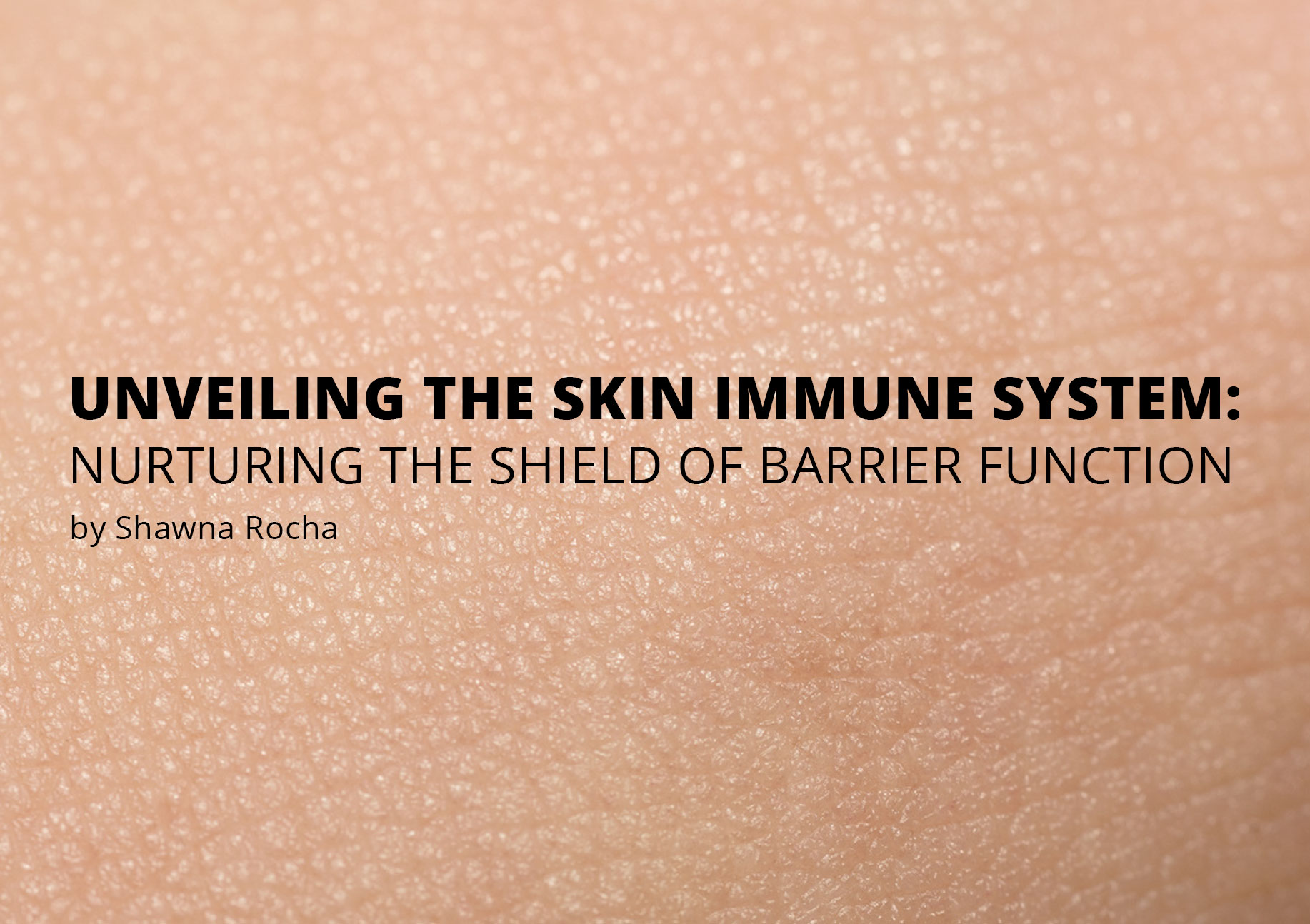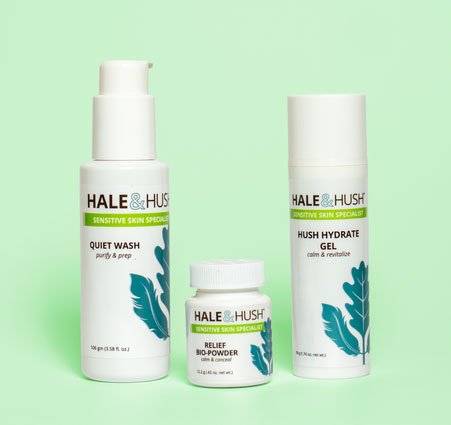
APRIL MONTHLY BLOG
By Shawna Rocha
The skin, our body’s largest organ, is not just a protective outer layer but a dynamic ecosystem teeming with immune activity. Embedded within its layers, the skin houses a sophisticated immune system comprising both innate and adaptive components. Understanding the intricacies of skin immunity and the pivotal role of barrier function is essential for maintaining skin health and overall well-being.
The Intricacies of Skin Immunity:
The skin’s immune system encompasses elements of both innate and adaptive immunity, strategically distributed throughout the epidermis and dermis. Key immune cells populate these layers, acting as vigilant sentinels against external threats. In the epidermis, epidermal dendritic cells, also known as Langerhans cells, and keratinocytes form the first line of defense. Meanwhile, the dermis harbors a myriad of immune cells, including dermal dendritic cells, lymphocytes (T cells, B cells, and natural killer cells), and mast cells. This diverse array of immune cells orchestrates a complex interplay to safeguard skin integrity and combat pathogens.
The Crucial Role of Barrier Function:
Central to the skin’s immune function is healthy barrier function, a multifaceted system that serves as both a physical and immunological barrier against external insults. The stratum corneum, the outermost layer of the epidermis, comprises corneocytes embedded in a lipid matrix composed of ceramides, cholesterol, and fatty acids. This lipid matrix forms a waterproof shield that prevents excessive water loss and shields against penetration by harmful substances.

Consequences of Poor Barrier Function:
A compromised skin barrier, characterized by moisture and water loss, renders the skin more susceptible to infections, sensitivities, and environmental damage. Micro-injuries in the barrier allow external irritants to breach its defenses, leading to a cascade of skin issues ranging from minor irritation to severe infections. Moreover, weakened skin immunity exacerbates inflammation and systemic inflammation, paving the way for age-related diseases.
Signs of Compromised Barrier:
Signs of compromised barrier function manifest in various forms, including redness, reactivity, dryness, oiliness, and uneven skin tone. Overuse of harsh products and tools further exacerbates the issue, stripping the skin of essential components and compromising its protective capacity. Additionally, compromised barriers can lead to stagnated cell turnover, decreased collagen synthesis, and diminished elasticity, culminating in a myriad of skin is such as dullness, premature aging signs, and inflammation.
Nurturing Skin Immunity through Barrier Support:
Maintaining the integrity of the skin barrier is paramount for preserving skin immunity and overall skin health. Proper skincare practices, including gentle cleansing, moisturization, and the use of barrier-supporting ingredients such as ceramides and lipid-rich emollients, are essential for reinforcing the skin barrier and promoting optimal immune function. Additionally, adopting a holistic approach to skincare that addresses dietary choices and lifestyle factors can further enhance skin resilience and immunity.
In conclusion, nurturing skin immunity through barrier support is imperative for preserving skin health and vitality. By understanding the intricate workings of the skin immune system and prioritizing barrier function, individuals can fortify their skin’s defenses and safeguard against external threats. Through proper skincare practices and lifestyle modifications, one can empower their skin to thrive and flourish, ensuring a radiant complexion and overall well-being for years to come.